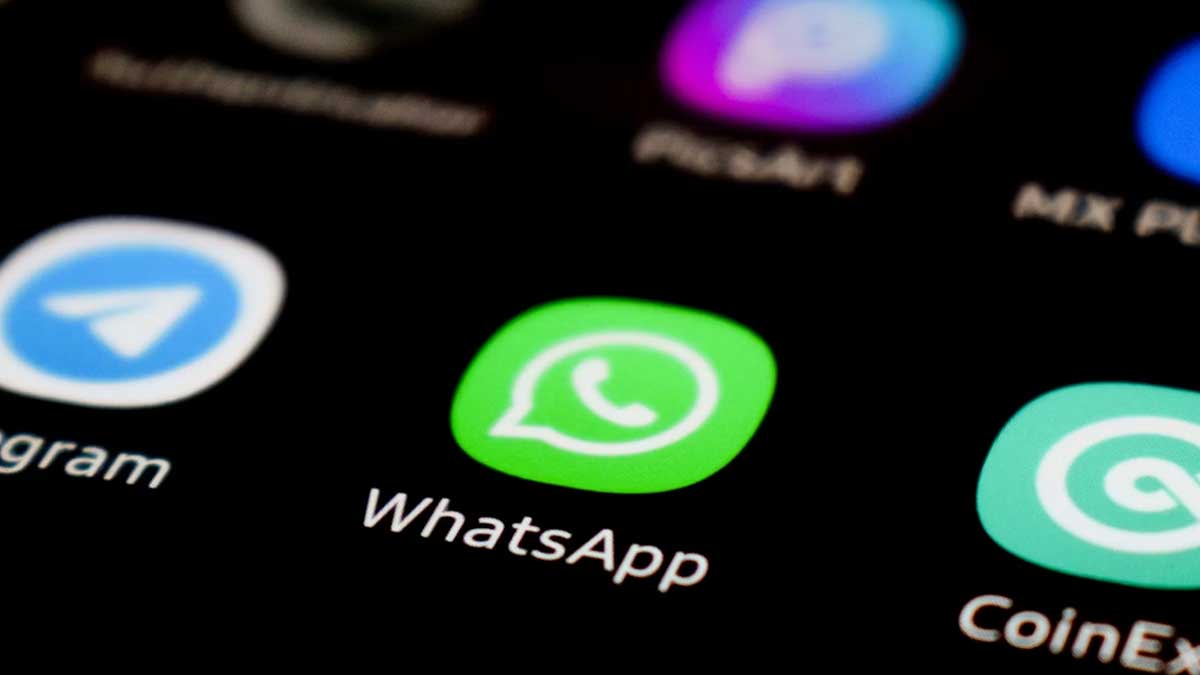- Home
- Billionaires
- Investing Newsletters
- 193CC 1000
- Article Layout 2
- Article Layout 3
- Article Layout 4
- Article Layout 5
- Article Layout 6
- Article Layout 7
- Article Layout 8
- Article Layout 9
- Article Layout 10
- Article Layout 11
- Article Layout 12
- Article Layout 13
- Article Layout 14
- Article Sidebar
- Post Format
- pages
- Archive Layouts
- Post Gallery
- Post Video Background
- Post Review
- Sponsored Post
- Leadership
- Business
- Money
- Small Business
- Innovation
- Shop
Recent Posts
Apple Pulls WhatsApp, Other Messaging Apps from Chinese Store

Apple has taken action in compliance with a directive from Chinese authorities, removing several popular messaging apps, including Meta’s WhatsApp, from the iPhone’s Chinese App Store. This move follows an order from Beijing officials who raised concerns about these apps posing “national security concerns.” The Wall Street Journal first reported on this development, noting that Apple did not disclose the complete list of apps flagged by Chinese authorities. Alongside WhatsApp, Apple also removed Meta’s Threads, as well as messaging apps Signal, Line, and Telegram from its digital storefront in China.
Apple emphasized its commitment to adhere to local laws in the countries where it operates, even when there are disagreements. The company’s decision to remove these messaging apps comes after Chinese officials reportedly found “inflammatory” content on WhatsApp and Threads related to Chinese President Xi Jinping. This content was deemed to be in violation of China’s stringent online censorship regulations.
One significant aspect of this story is that all the messaging apps targeted by the takedown offered end-to-end encryption for chats or calls between users. This encryption method limits the ability of Chinese authorities to monitor and censor content shared on these platforms. It remains unclear whether this aspect influenced Apple’s decision. Notably, Apple’s own messaging apps, iMessage and Facetime, also use end-to-end encryption. However, it is important to note that iCloud user data in China is managed by a local firm, with the necessary cryptographic keys stored within China.
Looking ahead, the U.S. House of Representatives is scheduled to vote on legislation that could potentially lead to a ban on TikTok in the United States. Lawmakers from both sides of the aisle have expressed concerns that TikTok, owned by a Chinese company, poses a national security threat. The proposed legislation would require TikTok’s Chinese parent company to sell the app or face a ban in the U.S. Chinese authorities have criticized this move, with the Chinese Foreign Ministry stating in March that such actions would undermine fairness by using “so-called national security reasons” to suppress superior companies from other countries.
Recent Posts
Categories
- 193 Countries Consortium Partner1
- 193cc Digital Assets2
- 5G1
- Aerospace & Defense48
- AI37
- Arts3
- Banking & Insurance11
- Big Data3
- Billionaires1,467
- Boats & Planes1
- Business332
- Careers13
- Cars & Bikes79
- CEO Network1
- CFO Network17
- CHRO Network1
- CIO Network1
- Cloud10
- CMO Network18
- Commercial Real Estate7
- Consultant1
- Consumer Tech194
- CxO1
- Cybersecurity73
- Dining1
- Diversity, Equity & Inclusion4
- Education7
- Energy8
- Enterprise Tech29
- Events11
- Fintech1
- Food & Drink2
- Franchises1
- Freelance1
- Future Of Work2
- Games149
- GIG1
- Healthcare79
- Hollywood & Entertainment203
- Houses1
- India’s 1000 Richest1
- Innovation46
- Investing2
- Investing Newsletters4
- Leadership65
- Lifestyle11
- Manufacturing1
- Markets20
- Media327
- Mobile phone1
- Money13
- Personal Finance2
- Policy569
- Real Estate1
- Research6
- Retail1
- Retirement1
- Small Business1
- SportsMoney42
- Style & Beauty1
- Success Income1
- Taxes2
- Travel10
- Uncategorized14
- Vices1
- Watches & Jewelry2
- world's billionaires1,436
- Worlds Richest Self-Made Women2
Related Articles
Samsung Galaxy S25 Ultra: What to Expect from the 2025 Flagship
In January 2024, Samsung unveiled the Galaxy S24 Ultra flagship at its...
By 193cc Agency CouncilJanuary 1, 2025Vivo Unveils Plans for Vision Pro Competitor Headset in 2025
While Apple’s Vision Pro has yet to achieve blockbuster success, Vivo, a...
By 193cc Agency CouncilDecember 31, 2024Amazon Offers Rare Discount on iPhone 16 Models
Amazon is offering a rare opportunity for Apple enthusiasts to score a...
By 193cc Agency CouncilDecember 31, 2024Edifier T5 Subwoofer: Affordable Bass Boost for Your Audio System
If you’ve ever wished for more bass from your speakers, you’re not...
By 193cc Agency CouncilDecember 31, 2024















Leave a comment